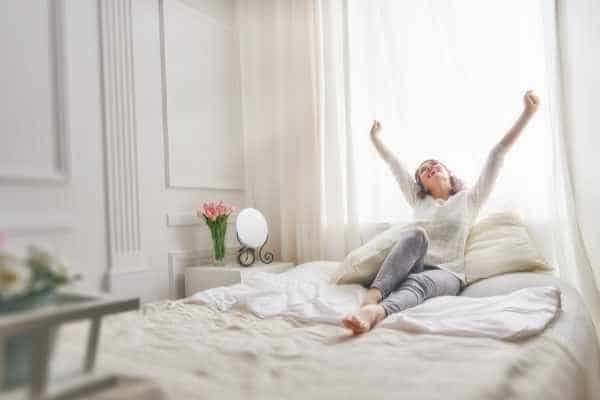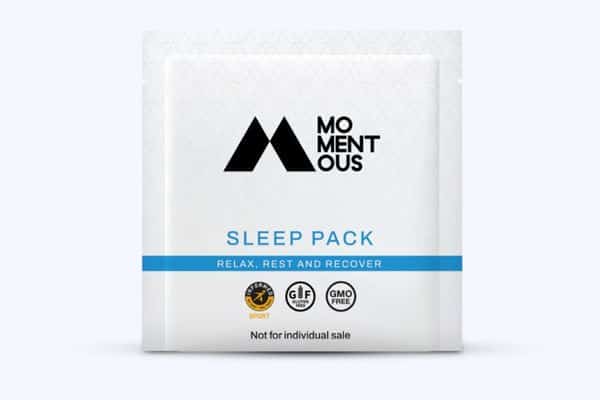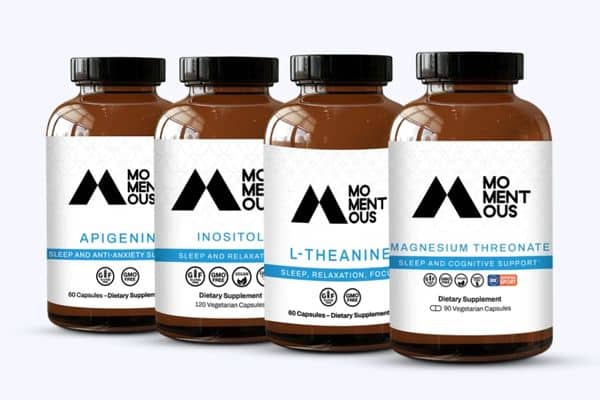Dr. Andrew Huberman of The Huberman Lab Podcast recommends a ‘sleep cocktail’ that he feels is a much better option than taking melatonin. I tried it out, and it worked for me. Learn more about this simple ‘sleep cocktail’ mix.
Dr. Andrew Huberman Sleep Cocktail
Dr. Andrew Huberman has discussed his ‘sleep cocktail’ on many podcasts. He also makes it clear that there are a lot of other things you can do to improve your sleep, so supplements really should not be your first step.
You can read more below about the sleep cocktail in detail and other ways to improve sleep but here is the sleep cocktail:
- Magnesium L-Threonate or Glycinate: 200-400mg 2-3 hours before sleep
- L-Theanine: 200-400mg (do not take if you are a sleepwalker)
- Apigenin: 50 mg
Of course It is vital to get ingredients for the the sleep cocktail from a trusted source, so Dr. Andrew Huberman has partnered with Momentous to provide the the sleep cocktail in convenient packs, as well as Huberman Lab designed supplement bundles.
Read on to learn about each component of the ‘sleep cocktail’, why Dr. Huberman really does not like melatonin supplementation. He is a fan of increasing your natural melatonin through light exposure to improve the quality of your sleep.
Consult your Physician or Registered Dietitian before starting nutrition supplements.
Andrew Huberman Sleep Supplements – Not Melatonin
When you think about a sleep supplement you probably think about melatonin. It is a safe and natural supplement right?
Well, Dr. Huberman has major concerns about supplementing with melatonin. One reason is that amount of melatonin in supplements is massively higher (10 to 1000x!!) than the amount we naturally produce.
He is also concerned that melatonin can really affect sex hormones. When Dr. Huberman was a young research student he observed that rats dose with melatonin developed hypogonadism (their testicles shrank!) and this made quite the impression on him. It has since been shown that melatonin can suppress puberty.

Melatonin is not bad – it is the dosage in supplements that is a problem. Rather than supplementing melatonin he recommends we adjust our natural melatonin through viewing light.
Instead of melatonin, Dr. Huberman recommends other supplements for sleep.
Huberman Sleep Cocktail: Magnesium Threonate, Apigenin and Theanine
Here is the famous Huberman Sleep Cocktail!
- Magnesium L-Threonate or Glycinate: 200-400mg 2-3 hours before sleep
- L-Theanine: 200-400mg (do not take if you are a sleepwalker)
- Apigenin: 50 mg
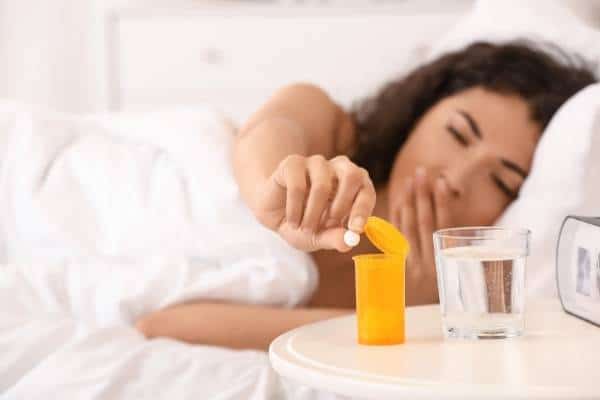
Let’s break down the components:
Magnesium Threonate for Sleep
I first learned about Magnesium L-Threonate from Dr. Huberman discussing it on the Tim Ferris podcast. While I had been taking magnesium for awhile, I had not heard about this formulation. Frankly I found all the different types of magnesium available pretty confusing.
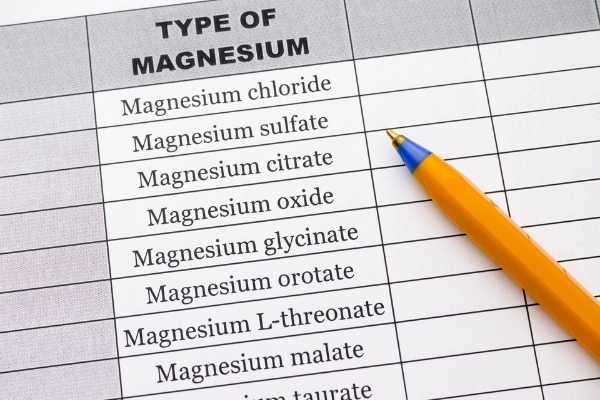
I go into more of a deep dive about Magnesium L-Threonate in this post, but in a nutshell it is a specific formulation of magnesium that more easily enters the brain. In addition to helping with sleep Magnesium L-Threonate has also been shown to have cognitive benefits.
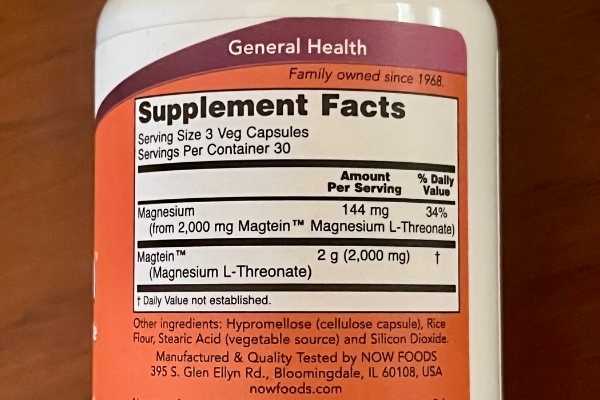
Magnesium threonate makes you mildly drowsy and helps with initially falling asleep, and giving you a deeper sleep. While Dr. Huberman recommends Magnesium L-Threonate, it is more expensive than other forms of magnesium. So if cost is an issue Magnesium Glycinate is pretty effective for sleep as well.
Also note that a small percentage of people have stomach issues with magnesium, so it might be best to start with a lower dose at first.
Apigenin for Sleep
Apigenin is a bioflavinoid, and it is found in chamomile tea and other vegetable and fruits. It can reduce anxiety, it helps to turn off the thinking, ruminating and problem solving that can keep you from falling asleep.
Apigenin can have sedative effects at higher doses.
So you can either supplement with a pill (Dr. Huberman’s recommended dose is 50mg) or you can get your apigenin in a more old school manner, and just have chamomile tea before bed.
Theanine for Sleep
L-theanine is an amino acid, which is found in tea and some mushrooms. L-theanine reduces stress and anxiety, reduces resting heart rate and improves sleep.
I wrote about how L-Theanine can reduce jitteriness associated with caffeine, and some people combine L-theanine with their coffee for synergistic effects.
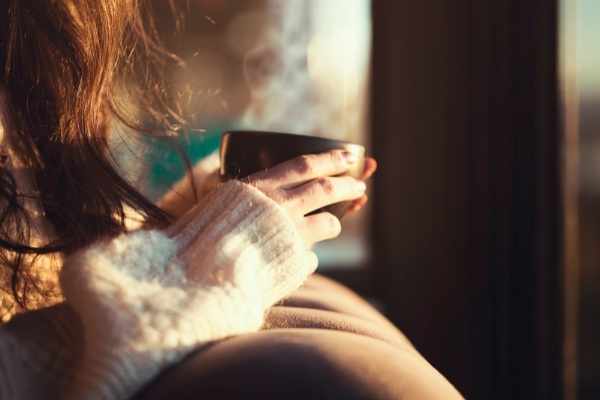
Dr. Huberman does say that people who sleep walk or who have very vivid dreams, particularly people who actually wake up because of their dreams should avoid the L-theanine component of the sleep cocktail.
Is the Sleep Cocktail Addictive?
Dr. Huberman discussed this in his Developing a Rational Approach to Supplementation for Health & Performance podcast episode.
He says that no, there is no dependence that develops on these supplements. It is not the same as becoming dependent on sleeping pills.
He says he regularly takes the sleep cocktail but sometimes forgets to take it and on those nights he sleeps fine.
But taking the sleep cocktail most nights seems to improve the depth and duration of his sleep. He does note that if he misses taking the sleep cocktail for multiple nights in a row he finds his sleep quality suffers. He can still fall asleep but the quality of his sleep is reduced in terms of depth and duration.
He did remind us that anything that we think works, can cause a placebo effect. Meaning if you can think you need a supplement to sleep, then not taking it can result in insomnia solely based on our mindset.
Huberman Sleep Cocktail – Personal Review
I have taken this mix of supplements quite a few times.
And the results? Well, I really did have some great sleeps some of the nights I took the Sleep Cocktail! It wasn’t completely consistent (which is why I have also been inconsistent about taking the cocktail) but I have had some nights with a huge amount of deep sleep (as measured by my Oura Ring).
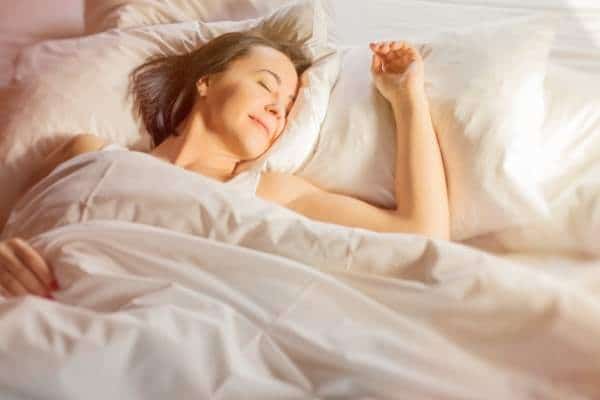
One night I got almost 3 hours of deep sleep! And I really did not do anything else that would have promoted that. In fact I had a late night drink and meal and went to bed later than I should have (all of which usually reduce my deep sleep). Which is pretty crazy.
Anyhow, this is totally anecdotal evidence, so take it with a grain of salt.
Summary: Andrew Huberman Sleep Supplements List
So we have Dr. Huberman’s Sleep Cocktail:
- Magnesium Threonate or Glycinate: 200-400mg 2-3 hours before sleep
- Link to purchase Magnesium Threonate at Momentous
- Link to purchase at Magnesium Threonate at Double Wood
- Theanine: 200-400mg (do not take if you are a sleepwalker or wake from vivid dreams)
- Link to purchase at Momentous
- Link to purchase at Double Wood
- Apigenin: 50 mg
- Link to purchase at Momentous
- Link to purchase at Double Wood
Or you can purchase the Sleep Cocktail ingredients in convenient ready made packs from Momentous:
Consult your Physician or Registered Dietitian before starting nutrition supplements.
Huberman Sleep Cocktail Addition: Inositol
Dr. Huberman will also add inositol to his sleep cocktail, he says inositol greatly enhances his sleep in terms of staying asleep.
If you are regularly waking up at 2 or 3am, Dr. Huberman says myo-inositol is a supplement that may help. The dose he recommends is 900mg of inositol, which will shorten the amount of time it takes to fall back asleep if you wake up in the middle of the night.
Inositol can also help with mood, and has been studied as a possible treatment for body focused repetitive behaviours.
- Inositol:
- Link to purchase at Momentous
- Link to purchase at Double Wood
Or get all four ingredients at once with this Momentous Huberman sleep bundle that also includes inositol:
Momentous Huberman Sleep Pack Coupon Code
Huberman Sleep Cocktail Amazon
The links above are from reputable brands, however if you prefer to look at the selection from Amazon here are links:
Consult your Physician or Registered Dietitian before starting nutrition supplements.
For more information on Dr Huberman's Supplement recommendations for overall brain health read this post, and creatine for brain health is covered here.
A list Dr. Huberman recommended books can be found here.
You might also be interested in the benefits of bio-flavanoids for treating Long-COVID symptoms, specifically luteolin supplementation and luteolin rich foods.

Dr. Andrew Huberman Sleep Recommendations
But don’t forget Dr. Huberman’s recommendation to adjust our natural melatonin through light exposure to improve sleep. These changes might seem simple but are actually very powerful.
- Get bright light exposure within 2 hours of waking
- As sun is setting, view the sun to send another signal to your brain that it’s evening
- As evening approaches, dim the lights
- Completely avoid any Bright light exposure between 11pm-4am

As well:
- Consider what might be causing your racing thoughts at night
- Avoid alcohol in the evening
- Don’t consume caffeine late in the day (although some people metabolise coffee differently)
- NSDR protocols during the day can help you learn to transition from wakefulness to sleep, which helps you fall asleep faster.
- But avoid napping if you are having trouble falling asleep.
- NSDR Protocols like Yoga Nidra or Self-Hypnosis can be used for insomnia.
- Techniques that calm your nervous system to help you sleep

References
- Huberman Lab: MASTER YOUR SLEEP & BE MORE ALERT WHEN AWAKE
- The Tim Ferriss Show Transcripts: Dr. Andrew Huberman — A Neurobiologist on Optimizing Sleep, Performance, and Testosterone (#521)
- Effects of L-theanine-caffeine combination on sustained attention and inhibitory control among children with ADHD: a proof-of-concept neuroimaging RCT
- Effect of Light and Melatonin and other Melatonin Receptor Agonists on Human Circadian Physiology
- Developing a Rational Approach to Supplementation for Health & Performance
